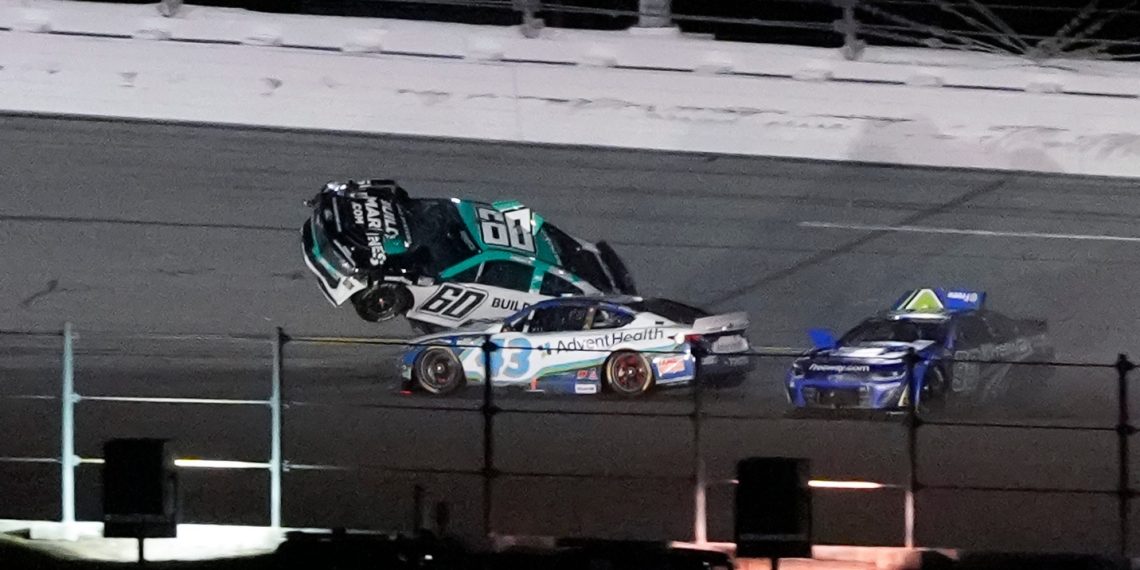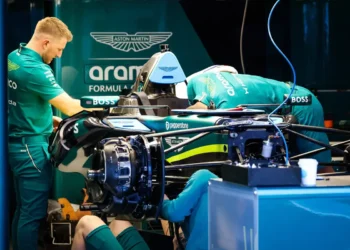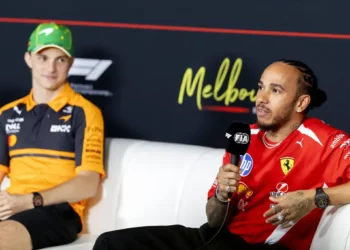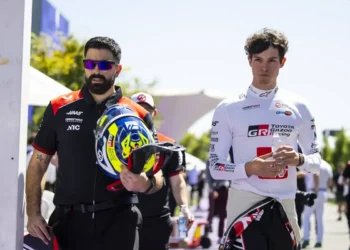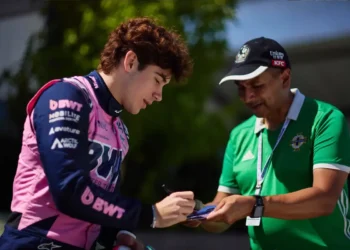The Daytona 500 is NASCAR’s grandest stage, a race that has defined legends, shattered dreams, and delivered some of the sport’s most iconic moments. It’s a battle of speed, skill, and survival, a race where precision and aggression must walk the tightest of tightropes.
But in recent years, a different narrative has emerged—one that calls into question whether Daytona still rewards racing excellence or if it has become a glorified game of chance.
From Strategy to Survival: The Daytona Dilemma
William Byron’s victory in the 2025 Daytona 500 tells the story better than any stat sheet could. He wasn’t the dominant car. He wasn’t the aggressor. He wasn’t even in the mix on the final lap.
He was simply the last man standing.
“William Byron says he really didn’t know how to react when he won the Daytona 500 … because he was seventh at the beginning of the last lap and found himself in victory lane after the leaders wrecked,” wrote Bob Pockrass.
That one statement encapsulates the frustrating reality of modern superspeedway racing. The winner is often not the driver who outsmarts the field, executes the best strategy, or even shows superior racecraft. Instead, it’s the one who happens to be in the right place when chaos inevitably erupts.
Byron’s crew chief, Rudy Fugle, didn’t even try to mask the truth.
“They really weren’t the dominant car. They weren’t somebody who had controlled the race,” Pockrass relayed.
Byron’s back-to-back Daytona 500 wins should be an incredible feat, but instead, they raise a more troubling question: Does winning this race actually mean anything anymore?
The Decline of Superspeedway Racing as a True Test of Skill
A look at recent Daytona 500 winners paints a clear picture of how unpredictability has swallowed the sport’s most prestigious event.
Once upon a time, superspeedway mastery mattered. Legends like Dale Jarrett, Dale Earnhardt Jr., and Jeff Gordon built resumes filled with multiple Daytona victories, cementing their ability to conquer the most unique challenge in motorsports.
Now? The last decade has handed us Daytona 500 champions like Ricky Stenhouse Jr., Austin Cindric, and Michael McDowell—talented drivers, yes, but not exactly the standard-bearers of NASCAR dominance.
None of them have turned their Daytona 500 victories into championship-contending seasons, proving just how much of an outlier this race has become. Even three-time 500 winner Denny Hamlin sounded indifferent after his wrecked-out run this year, saying, “Everyone’s trying to go for it.”
That’s the issue in a nutshell. Daytona and Talladega used to reward risk and reward in equal measure. Now, they just reward survival.
The “Mickey Mouse” Victory Debate: A Necessary Conversation?
A win is a win in the record books. But NASCAR fans aren’t blind to the difference between a true masterclass victory and one handed over by the racing gods.
The term “Mickey Mouse victory” has become an increasingly common insult lobbed at drivers who win in crash-filled finales, victories that seem more about luck than racing acumen.
Byron’s win will divide NASCAR’s hardcore base.
- Some will argue that he put himself in the right position, played it smart, and capitalized on the opportunity.
- Others will say that he got lucky, benefited from the Big One, and didn’t truly “earn” his place in Victory Lane.
This is the Daytona paradox: It’s NASCAR’s biggest race, yet it often produces winners who don’t feel like they’ve conquered anything at all.
Can NASCAR Fix Its Superspeedway Problem?
There’s no denying that Daytona and Talladega offer some of the most exhilarating racing in the world. Fans tune in for the high speeds, daring moves, and the unpredictable nature of pack racing. But that unpredictability has crossed the line from thrilling to problematic.
Drivers feel less in control of their own destiny than ever before. The best cars rarely win on merit, and the championship-caliber drivers—the ones we expect to see hoisting the biggest trophies—are often left out of the conversation completely.
The challenge for NASCAR is clear:
How do you preserve the spectacle of superspeedway racing while ensuring that victory at Daytona still carries legitimacy and prestige?
Until that balance is found, the Great American Race will continue to be NASCAR’s most entertaining—but most controversial—event.

